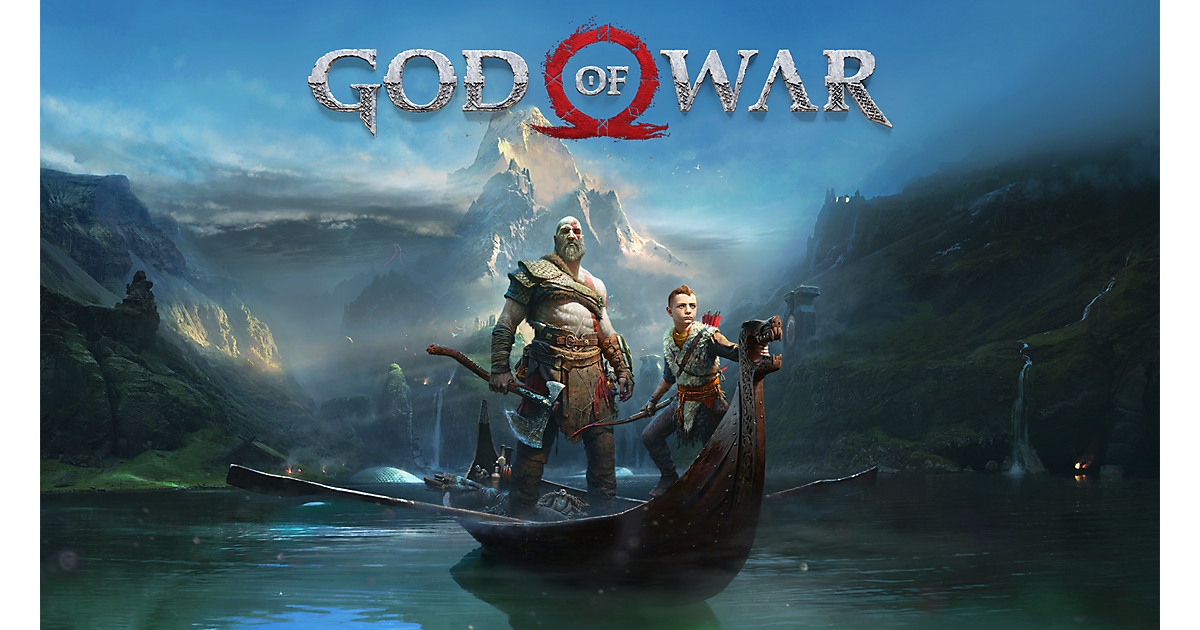I just finished the excellent semi-rebooted God of War on the PlayStation 4. The series started out on the PlayStation 2, and tells a classic Greek tragedy where the protagonist, Kratos, is tricked by the (former) Greek god of war Aries to kill his own family1. Upon discovering their treachery, he goes on a tour of revenge against the gods, first against his former master, but eventually expanding to the entire pantheon. The games are known for responsive combat interspersed with puzzles, infused with an almost preserve insistence on over-the-top violence—hitting the same notes as Mortal Kombat—where the ridiculousness goes beyond gory and edges towards comical.
This latest game2 still has plenty of gore, but it does not merely follow its predecessors in gorging on Kratos’s anger and rage as the primary motivator. The setting has evolved from Greek to Norse—which comes with their own set of gods and mythical creatures and legends—but that’s not the biggest break from the past. Rather, this aged and presumably wiser deity of war is not the same angry protagonist who instinctively responds to most things he comes across by beating the crap out of it. The cover art immediately gives it away: the game is a journey with Kratos and his boy, in a canoe, paddling around a body of water.
Thus, the previous pacing formula of intermixing battles and puzzles3 adds a third wheel in the form of constant character interactions, chattering about the events of the story so far as well as the mystical world of Midgard. It’s a slightly different take on the world-building-through-items technique that modern games often use to add depth to their environment, but instead of just scattering collectables4, the game introduces more backstory and mythology via having its characters converse on the topic.
Moreover, these interactions between Kratos and his son Atreus is a key part of the game, and they contribute to the overall narrative centered around this father-son relationship. In this, I find that video games are becoming a unique medium of conveyance, and not only because the player gets to control—and therefore directly encouraged to empathize—with the in-game protagonist. Clocking in at at least 20 hours, epic single-player video games like God of War can spend the necessary time to immerse their players fully into the story, with enough breadth and scope to really develop its characters and plot complete with twists and turns and character arcs. It speaks to the evolution of the medium that games are now even starting to tap into the toolsets of traditional cinema for new ways to tell their stories.
One last point: I appreciate the restraint that the game’s director and writers had in keeping the main and supporting cast small so their individual stories can be explored more deeply. I liken it back to the transition from 2D to 3D for the Final Fantasy series—
The former, Final Fantasy 6, is often remembered as the best FF game of the series with an incredible storyline and a giant cast of playable characters. Outside of a handful of primary heroes and one villain that drive the story forward, however, that cast of characters ends up being mostly one-dimensional, more caricature than complex; many of the individual storylines boil down to optional side quests that spell out origin stories5. To be fair, its central characters did have real narrative arcs, but most of the playable cast served to add gameplay mechanics than enrich the storyline.
The latter, Final Fantasy 7, is admittedly a bit weirder. Though the big leap was going from a 2D sprites engine to 3D polygons6, I distinctly remembered how the game made an abrupt shift to smaller cast, with fewer characters overall but more interactions and progression per individual member. Certainly the decision was made in part due to the technical limitations at the time, but that constraint ultimately provided richer backstories, so much so that an entire compilation of movies and games have followed up on the original game to flesh out other parts of that overarching storyline.
Taking it back to God of War, it represents the latest in a series of epic, single-player action-adventure games that narrow in on a handful of main characters to highlight their depth. The trend feels like a significant evolution of video games, in that storytelling has gotten good enough—motion capture for a game is nowadays indistinguishable from a movie with CG—that developers are stretching beyond previous, embarrassingly low baselines for how well a game can tell its story. Even as multiplayer games explode in popularity and embed themselves as an integral part of pop culture, I’m most excited to experience games that can spin a good yarn, in ways that only games can do.
Something about proving his loyalty to the gods, and to remove distractions from his servitude.↩
Released in the spring of 2018.↩
There was also a smattering of gorgeous vistas scattered throughout past games, continued here as well.↩
To be clear, God of War also totally scatters story-relevant items throughout its world.↩
That said, for its time, FF6 is still way ahead of its contemporaries in what it was trying to do with story in a video game.↩
With the slight caveat that all the overworld backgrounds were pre-rendered statically.↩



